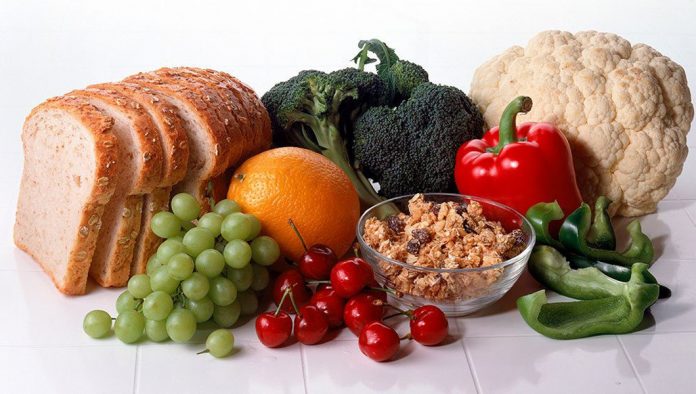
Healthy Foods You Can Eat on a Ketogenic Diet
The Ketogenic Diet is one of the trendiest diets on the market now. It’s endorsed by many celebrities and famous sportspeople like LeBron James. Basically, it has received a lot of publicity for its use of “high-quality fats”, low or no use of carbohydrates, and minimal protein content.
This combination of high fats and low carbohydrates has settled very well with a lot of people in the medical and health fields. Particularly with medical doctors who endorse the use of high-quality fats in the daily diet. This is because if we deprive our bodies of fats, we basically starve our brain because it is made of 60% fat.
Ketogenic Diet – what’s the fuss?
The main objective of the Ketogenic Diet is to train the body to burn up its storage of fats instead of carbohydrates. When you limit your intake of carbohydrates, you basically enter a metabolic state of “ketosis”. Wherein, the body burns up more fat (ketones) instead of the usual carbohydrates.
Experts say our bodies were historically used to burning up fats since the days of early man when primitive hunter-gatherers would hunt for meat so they can burn up fat and survive a cold winter.
But, for treating cancer patients, we definitely will recommend not dining too much on fatty meats. Rather on other kinds of high-quality fats that we are going to discuss further here.
So what are the best foods to eat on a Ketogenic Diet? Here are some of them:
Seafood
Fish and fish oil are high in Omega-3 Fatty acid content. It helps lower insulin levels and increases insulin sensitivity for diabetics. Fish rich in Omega-3 fatty acids include salmon, mackerel, sardines, and other fatty fish.
Overall, fish and shellfish are rich in potassium, Vitamin B and Selenium. More importantly, fish are basically carbohydrates free and so are some shellfish.
Eating constantly a few servings of fish per week (at least two) could help in maintaining good mental health.
Some carbohydrate contents of some shellfish are here (based on a 100-gram serving): Mussels, 7 grams; Clams, 5 grams; Squid, 3 grams; Oysters, 4 grams; Octopus, 4 grams. You can check this list when you need to monitor your carbohydrates content.
Coconut Oil
Coconut Oil is probably the best thing that could have ever happen to the Ketogenic Diet. With its medium-chain triglycerides (MCTs), coconut oil can be absorbed by the liver and changed into ketones for a quick source of energy by the body.
Coconut oil is also good for people with Alzheimer’s Disease and those with brain and nervous system disorders. Since it helps sustain a level of ketosis for those afflicted with these diseases. It has also been tested that obese males lose their belly fat by an average of 1 inch (2.5 cm) when taking in 2 tablespoons (30 ml) of coconut oil every day without making any other changes in their diet.
Coconut Oil’s many health benefits are attributed to lauric acid which is a longer-chain fatty acid. It is said that a combination of MCTs and lauric acid in coconut oil makes it a perfect food for ketosis.
Coconut Oil is also attested to by certain countries and populations. This is to be capable of lowering the rate of heart disease, strokes, and diseases afflicting the brain.
Low Carbohydrate Vegetables
Low carbohydrate vegetables which refer to non-starchy ones like cruciferous vegetables (kale, spinach, broccoli, cauliflower and other leafy vegetables) are good sources of vitamin C, several minerals, and low in calories. Cruciferous vegetables are repeatedly being linked to decreased cancer rates. Also, in lowering heart disease risk because of their antioxidant content which fights against free radicals.
Likewise, several vegetables like cauliflower can be used as replacements for rice or mashed potatoes or squash made to look like spaghetti.
Avocados
Avocados are known to be high in vitamins and minerals which include potassium and help improve one’s triglyceride and cholesterol levels.
It is also low in carbohydrates and high in fiber. About one-half of a medium-size avocado only contains 2 grams of carbohydrates.
A study made on people who eat a diet rich in avocados showed that they experienced a 22% reduction in bad cholesterol (LDL) and an increase in good cholesterol (HDL).
Seeds and Nuts
Nuts and seeds are high fat and low in carbohydrates. In fact, the carb content for nuts and seeds is about 0-8 grams per ounce (about 28 grams).
All these nuts and seeds have been tested to provide a reduced risk of certain types of cancer, heart disease, and depression.
Berries
Most fruits are too high in carbohydrates to be included in a Ketogenic Diet – but berries are the main exception!
High in fiber and low in carbohydrates, berries, such as blackberries, blueberries, and raspberries, possess as much fiber as carbohydrates.
They are also famously known and consumed for having high concentrations of antioxidants. Which is linked to reducing inflammation and protection again certain cancers and heart disease.
Here are some of the carbohydrate count for 100 grams of these berries: Blackberries (5 grams net carbs), Strawberries (6 grams net carbs), and Raspberries (6 grams net carbs).
How about you – any favorite Ketogenic Diet foods that you think works well with you? Share your info in the comments below!
Image by Naser Chawroka / CC BY 2.0
Copyright 2025, DoctorFarrah.com








